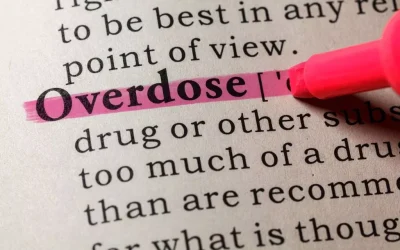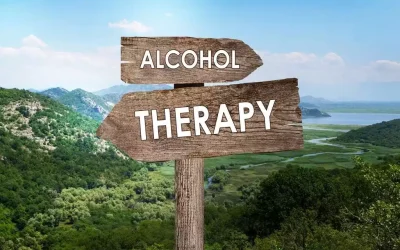Pradaxa dabigatran: Uses, side effects, dosage, and more
However, people should not consume alcohol instead of taking medications as a healthcare professional has prescribed. Additionally, a person should discuss whether they are able to consume alcohol while taking blood thinners, as alcohol may interact with some medications and lead to side effects. Yet because of this effect, drinking alcohol could potentially increase your risk for the bleeding type of strokes — especially when you drink it in large quantities. Alcohol use — especially in excess — can also pose other risks to your health. This section describes different classes of medications and their interactions with alcohol (see table 3).

Other chronic diseases
- Because each resident in Taiwan is assigned a unique personal identification number, all of the study participants could be traced through the NHI records for the entire follow-up period.
- Consequently, the combination of these medications with alcohol would exacerbate this memory-impairing effect.
- The review authors highlighted that previous research has suggested drinking significant amounts of alcohol every day has links to a higher risk of developing high blood pressure.
- It stops bleeding, creates a protective covering to keep germs and debris out of a wound, and then rebuilds the skin so it’s good as new (or nearly so, if the wound leaves a scar).
- The offspring had an increased risk of delayed or irregular bone formation and death.
- Pradaxa also has a boxed warning for a type of blood clot called a hematoma that’s spinal (in your spinal column) or epidural (in the area right around your spine).
- Drinking alcohol in moderation may have a protective effect on your blood vessels.
You and your provider may need to take steps to prevent excessive bleeding. Don’t stop taking aspirin without talking to your health care provider. If you need to take ibuprofen or similar medicines, is alcohol a blood thinner talk to your health care provider about alternatives that won’t interfere with daily aspirin therapy. If you are on daily aspirin therapy, talk to your health care provider before stopping it.
Are some blood thinners different than others in this regard, or is it all the same risk?
Drug Interactions: Alcohol, Food, and More – Healthline
Drug Interactions: Alcohol, Food, and More.
Posted: Mon, 11 May 2020 07:00:00 GMT [source]
Conversely, decreased metabolic rates may result in the accumulation of higher drug concentrations over longer periods of times, which may result in harmful overdoses. Although alcohol does not interact with the mechanism of Eliquis, some evidence suggests that moderate alcohol drinking can act as a blood thinner. According to the American Blood Clot Association, one study showed that the alcohol content in 1 or 2 drinks could potentially decrease blood clotting. Although these study results were noted as incidental findings, it would seem that there is a potential for a higher risk of bleeding if alcohol does indeed decrease clotting—when taken with Eliquis. Infection with the hepatitis C virus, which can result in serious and even fatal liver damage, is common in the United States and around the world. The only effective treatment to date involves a substance called interferon-α, often in combination with an agent called ribavirin, and has a cure rate of approximately 40 percent.
Pradaxa for reducing the risk of stroke and systemic embolism in people with A-fib
Other examples of antiplatelets include clopidogrel, dipyridamole, prasugrel and ticagrelor. A dose of 50 to 100 milligrams of acetylsalicylic acid is already enough to reduce the blood’s clotting ability. At higher doses of about 500 milligrams, this medication is also used as a painkiller. They make it harder for blood platelets to attach to damaged blood vessels, stick to each other, and form a blood clot. That’s why antiplatelets are also called platelet function inhibitors or platelet aggregation inhibitors (where “aggregation” means to stick together).
- As mentioned earlier, heavy alcohol use enhances CYP2E1 activity.
- Drinking alcohol while on daily aspirin therapy may increase the risk of stomach bleeding.
- A person’s CYP2E1 activity level, however, could influence his or her susceptibility to alcohol-medication interactions involving this enzyme.
- Doctors and pharmacists can advise people whether they should avoid or limit their alcohol use while taking blood thinners.
Moderate alcohol use is generally safe while taking most blood thinners. For healthy adults, doctors recommend limiting alcohol intake to a maximum of two drinks a day for males and one drink a day for females. This article explains the safety and effects of drinking alcohol while using blood thinners. Completely abstaining from alcohol is the key recommendation if you have alcohol-induced cardiomyopathy.

More On DVT
- That also may involve supportive care that will help prevent — or at least reduce the impact of — any alcohol withdrawal symptoms.
- In addition, liver toxicities caused by various natural products have now been identified (Heathcote and Wanless 1995), and their combination with alcohol may enhance potential adverse effects.
- Because Pradaxa stops your blood from clotting easily, you may be at an increased risk of bleeding if you have surgery while taking the medication.
- ” First, let’s talk about the uses of Eliquis and other safety information.
- Alcohol can cause an increased release of cortisol and, in turn, higher blood pressure and a faster heartbeat.
If you take daily aspirin, is it still safe to take an aspirin during a heart attack?

